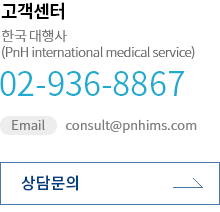면역치료 | 간암 CAR-T 임상 연구 Autologous CAR-T/TCR-T Cell Immunotherapy for Malignanc…
페이지 정보
작성자 HK HIS 작성일19-09-16 18:18 조회5,379회 댓글0건관련링크
본문
Autologous CAR-T/TCR-T Cell Immunotherapy for Malignancies
Brief Summary:
This is a single arm, open-label, uni-center, phase I-II study to evaluate the safety and effectiveness of CAR-T/TCR-T cell immunotherapy in treating with different malignancies patients.
*B-cell Acute *Lymphoblastic *Leukemia *Lymphoma *Myeloid Leukemia *Multiple Myeloma *Hepatoma *Gastric Cancer *Pancreatic Cancer *Mesothelioma *Colorectal Cancer *Esophagus Cancer *Lung Cancer *Glioma *Melanoma *Synovial Sarcoma *Ovarian Cancer *Renal Carcinoma
Biological: CAR-T cell immunotherapy
Detailed Description:
The study is a multi-target gene-modified immunotherapy. CAR-T/TCR-T cells include ten different tumor-specific antibody.They are as following:anti-CD19 antibody for B cell leukemia and lymphoma;anti-CD22 antibody for B cell leukemia and lymphoma;anti-CD33 antibody for myeloid leukemia;anti-BCMA antibody for multiple myeloma;anti-CD38 antibody for multiple myeloma;anti-NY-ESO-1 antibody for multiple myeloma,esophagus cancer,lung cancer,melanoma and synovial sarcoma;anti-DR5 antibody for hepatoma;anti-C-met antibody for hepatoma,colorectal cancer,ovarian cancer and renal carcinoma;anti-EGFR V III antibody for hepatoma,lung cancer and glioma;anti-Mesothelin antibody for gastric cancer,pancreatic cancer and mesothelioma
Arms and Interventions
Arm
Experimental: CAR-T cell immunotherapy
Enrolled patients will receive CAR-T cell immunotherapy with several different specific Chimeric antigen receptors aiming at different antigens respectively by infusion.
Interventions
Biological: CAR-T cell immunotherapy
According to tumor burden and other conditions, patients will be treated with cyclophosphamide or fludarabine,then,CAR-T cells will be infused 48-72 hours later.
Primary Outcome Measures :
1. Number of Participants With Adverse Events evaluated with NCI CTC AE, version 4.0 [ Time Frame: 60 months ]
Safety evaluation
Secondary Outcome Measures :
1. Clinical response [ Time Frame: 60 months ]
Clinical response to T-cell infusion, especially change of tumor volume will be evaluated by comparing disease identified by computed tomography, magnetic resonance imaging.
2. CAR-T cells testing [ Time Frame: 60 months ]
The level of CAR-T cells will be tested regularly by Real-time Quantitative Polymerase Chain Reaction Detecting System(qPCR) or Flow cytometry to evaluate the proliferation in vivo and long-term survival.
Ages Eligible for Study: | 4 Years to 70 Years (Child, Adult, Older Adult) |
Sexes Eligible for Study: | All |
Accepts Healthy Volunteers: | No |
Criteria
Inclusion Criteria:
1. If patients had receive immunotherapy, they should reach PR/NR, or recurrency.
2. Patients must be willing to sign an informed consent.
3. age: 4 to 70 years
4. Estimated survival of ≥ 12 weeks, but ≤ 2 years
5. Blood tumor or solid tumor was diagnosed by histopathology.Positive expression of CD19, CD22, CD33, CD38, BCMA, NY-ESO-1, c-met, Mesothelin, CEGFRvIII and DR5 was confirmed by biopsy IHC test or flow cytometry test. If NY-ESO-1 is positive expression ,positive HLA-A*0201 is required at the same time .
6. Subjects with solid tumor must have measureable disease
7. Routine blood test:hemoglobin>=90 g/L; platelet>=50×10^9/L.
8. Renal function:BUN: 9-20mg / dl; serum creatinine<= 1.5 times upper limits of normal; endogenous creatinine clearance rate>=50 ml/min
9. Negative serum antibody for EBV, CMV, HIV , syphilis, HBVa nd HCV(patients with liver cancer were excluded)
10. Cardiac function: stable hemodynamic and left ventricular ejection fraction (LVEF)>=55%.
11. ECOG score ≤2
12. Adequate venous access for apheresis, and no other contraindications for leukapheresis
13. Women of child-bearing age must have evidence of negative pregnancy test.
14. Subjects of reproductive potential must agree to use acceptable birth control methods within 1 year after treatment, as described in protocol.
Exclusion Criteria:
1. ECOG >= 3
2. Patients with history of T cell tumors
3. Patients with severe insufficient cardiac, pulmonary and hepatorenal functions
4. Acute or chronic GVHD after allogeneic hematopoiesis
5. steroid hormoneswere used before and after blood collection and infusion
6. HIV infection or active hepatitis B or hepatitis C infection
7. Uncontrolled active infection
8. Enrolled to other clinical study in the last 4 weeks.
9. Subjects with systemic auto-immune disease or immunodeficiency.
10. Subjects with CNS diseases.
11. Other patients that researchers considered unsuitable for inclusion






